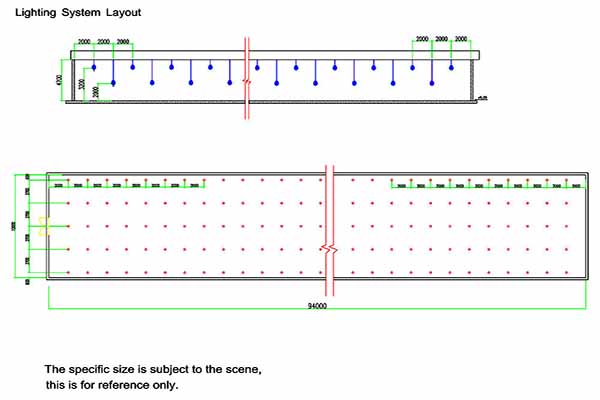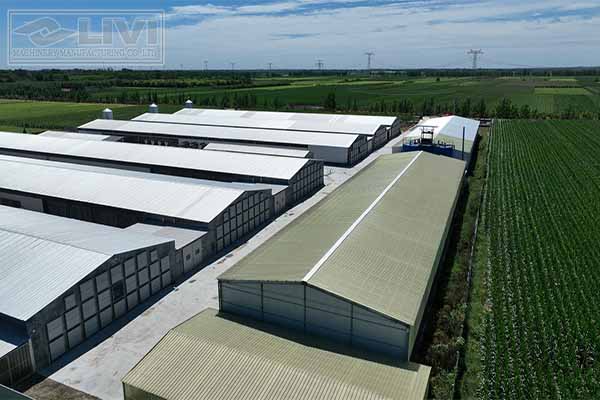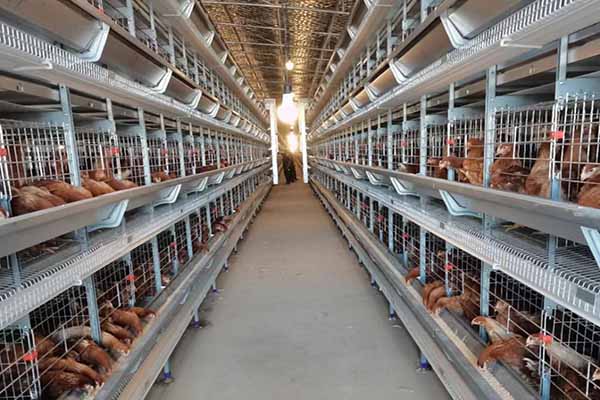Revolutionizing Chicken Farming in Kenya with Remote Debugging Services for Farming Equipment
Time : 2025-04-24
Chicken farming has become a vital industry in Kenya, providing employment and a source of income for many. However, managing the farming equipment can be a challenge, especially when it comes to troubleshooting and maintenance. That’s where remote debugging services come into play. In this article, we’ll dive into the world of remote debugging services for chicken farming equipment in Kenya, exploring how they can revolutionize the industry and make it more efficient and cost-effective.

Understanding Remote Debugging Services
Before we dive into the specifics of remote debugging services for chicken farming equipment in Kenya, let’s first understand what remote debugging is. Remote debugging is a process where technicians can diagnose and fix issues with equipment from a distance, using advanced tools and software. This means that farmers in Kenya can get the help they need without having to wait for technicians to physically visit their farms.
The Importance of Equipment Maintenance in Chicken Farming
Chicken farming, like any other form of agriculture, relies heavily on equipment to ensure smooth operations. From feeders to waterers, from incubators to ventilation systems, each piece of equipment plays a crucial role in the success of the farm. However, equipment can break down, and when it does, it can disrupt the entire farming process. This is where remote debugging services become invaluable.
Regular maintenance not only helps in preventing breakdowns but also ensures that the equipment operates at its optimal capacity. In the chicken farming industry, where time is of the essence, having a reliable equipment maintenance system is crucial. Remote debugging services offer a solution that is both efficient and cost-effective.
How Remote Debugging Services Work in Kenya
In Kenya, remote debugging services for chicken farming equipment are becoming increasingly popular. Here’s a step-by-step guide on how these services work:
- Reporting the Issue: When a farmer notices a problem with their equipment, they report it to the remote debugging service provider.
- Initial Assessment: The service provider conducts an initial assessment of the issue based on the information provided by the farmer.
- Remote Access: If the issue requires further investigation, the technician gains remote access to the equipment to diagnose the problem.
- Fixing the Issue: Once the problem is identified, the technician provides step-by-step instructions to the farmer on how to fix it. In some cases, the technician may even make the necessary adjustments remotely.
- Follow-Up: After the issue is resolved, the service provider follows up to ensure that the equipment is functioning properly and that the farmer is satisfied with the service.
Benefits of Remote Debugging Services for Chicken Farmers in Kenya
There are several benefits of using remote debugging services for chicken farming equipment in Kenya:
- Time Efficiency: Remote debugging saves time as technicians can diagnose and fix issues without the need for physical visits.
- Cost-Effective: By avoiding travel expenses and the need for on-site technicians, remote debugging services can be more cost-effective for farmers.
- Expertise: Farmers can benefit from the expertise of technicians who specialize in chicken farming equipment.
- Reduced Downtime: With quick troubleshooting and resolution, downtime due to equipment failure is minimized.
- Customized Solutions: Remote debugging services can provide tailored solutions to specific equipment issues, ensuring that the farmer’s needs are met.
Challenges and Solutions
While remote debugging services offer numerous benefits, there are also challenges to consider. One of the main challenges is the lack of internet connectivity in some rural areas of Kenya. To address this, service providers are increasingly offering offline diagnostic tools that can be used when internet access is limited.

Future of Remote Debugging in Chicken Farming
The future of remote debugging in chicken farming looks promising. As technology advances, we can expect to see more sophisticated tools and sof tware that will make remote debugging even more efficient and reliable. Additionally, as more farmers in Kenya adopt technology, the demand for remote debugging services is likely to increase, further driving innovation in this field.
tware that will make remote debugging even more efficient and reliable. Additionally, as more farmers in Kenya adopt technology, the demand for remote debugging services is likely to increase, further driving innovation in this field.
Conclusion
Remote debugging services for chicken farming equipment in Kenya are a game-changer for the industry. By providing quick, cost-effective, and expert solutions to equipment issues, these services are helping to revolutionize chicken farming in the country. As more farmers embrace technology and the benefits it brings, the future of chicken farming in Kenya looks bright and productive.











